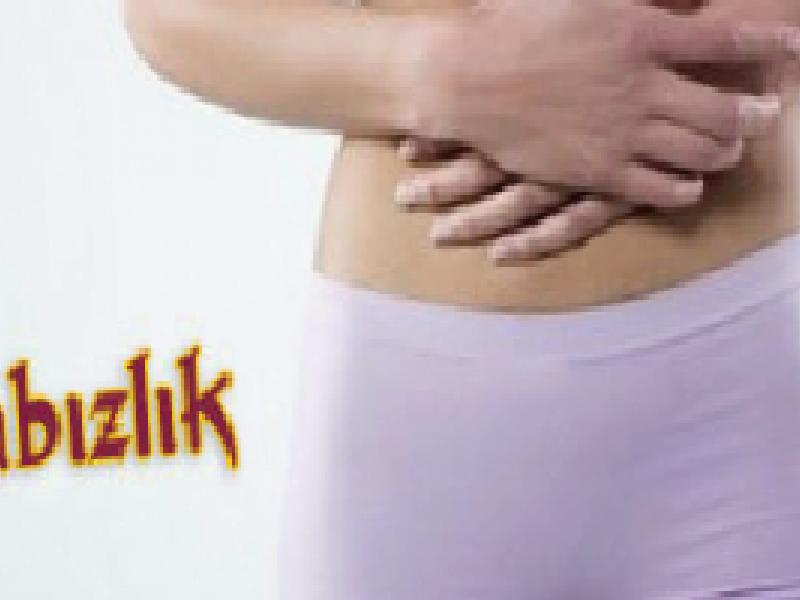
The term constipation, or constipation, is used by patients for painful defecation due to infrequent defecation, inadequate defecation, excessively hard stools or discomfort around the anus. Constipation occurs in approximately 95% of healthy people, as there are very variable numbers from three bowel movements per day to three times per week; It should be evaluated in terms of deviations from the individual’s previous defecation habits rather than the absolute number of defecations.
Chronic constipation is common in western societies, with approximately 10% of the population regularly using laxatives. Most patients with chronic constipation have a large, dry stool mass in the rectum, initial defecation failure, or a habit of ignoring or delaying the incoming defecation stimulus. Voluntary suppression of this urge to toilet occurs in childhood or later in life. The reason for this can often be a comfortable and unclean toilet environment, intense work schedule or situations that require constant bedtime.
It is more common in women, which is due to the fact that women are more meticulous about going to the toilet, especially outside their homes. Constant fullness of the rectum with stool becomes chronic, the person begins to decrease the sensitivity of noticing the fullness in the rectum. Progressive bowel movements become more difficult, later hemorrhoids and fistulas make defecation more difficult and the defecation reflex begins to be suppressed. The patient starts to use laxatives and enemas to get rid of this difficult situation and becomes dependent on them, where defecation can no longer occur spontaneously.
Causes of Constipation:
1.Functional reasons: Dietary habits poor in fiber, insufficient water intake, inadequate defecation habit.
2. Colon diseases: Obstructive lesions (such as tumor, stricture), Hirsprung’s disease and collagen-vascular diseases (eg scleroderma)
3.Rectal diseases: Stricture (ulcerative colitis, post-surgical constipation) ), painful lesions (fissure, abscess), rectal mucosa prolapse, rectocele, rectal invagination.
4.Neurological diseases: Spinal cord trauma, Parkinson’s disease, Hirschprung’s disease, Chagas disease, cerebral tumors, cerebrovascular accidents,
5. Metabolic and endocrine diseases: Porphyria, hypothyroidism, hypercalcemia, pheochromocytoma and uremia, Diabetic neuropathy.
6.Psychiatric diseases
7.Drugs: Analgesics, Antacids, Anticholinergics, Anticonvulsants, Antidepressants, bismuth powders, Iron preparations, heavy metal poisoning, parkinsonian drugs etc.
Due to the richness of the neural hardware of the intestines, any problem that occurs in that region can cause many different complaints in the body. In addition, the deterioration of the number and quality of many beneficial bacteria on the inner surface of the intestine causes many diseases. Beyond that, prolonged constipation paves the way for an increase in the toxic load of the body and the emergence of some other diseases.
We can list the diseases associated with intestinal flora disorder and impaired enteric nervous system function as follows:
Gastrointestinal Diseases:
-Infectious diarrhea
-Functional bowel diseases; chronic constipation, meteorism, food intolerance, dyspepsia…
-Inflammatory Bowel Diseases; Crohn’s disease, ulcerative Colitis
Skin Diseases: Psoriasis, seborrheic dermatitis, urticaria, Neurodematitis
Chronic Infections: Chronic sinusitis, chronic tonsils etc.
Allergic Diseases: Allergic rhinitis, allergic asthma
Other Diseases: Reactive Arthritis, Recurrent Urogenital System Infections, Vulvovaginal mycoses.
The treatment of constipation is as complex as its diagnosis. Therefore, anamnesis, physical examination and laboratory tests should be evaluated well and a plan should be created accordingly. If there is an interference field, Neural Therapy is used first, but if the patient has a problem with energy in his meridians, Acupuncture comes first. According to the stool analysis, if the microflora is impaired, you cannot be successful with any method without colon cleansing (colon hydrotherapy) and correcting the flora. Food intolerance also lurks on the sidelines, and if you missed it, you’d still lose your chance of success. Nutrition is very important in overcoming constipation and psychological evaluation should be considered in intestinal problems.
The methods used in the treatment are as follows:
1.Neural therapy
2.Acupuncture
3.Microbiological Medicine
4.Regulation of nutrition
5.Food intolerance
6. Psychological support
7. Colon Hydrotherapy
8. Magnetic field therapy

